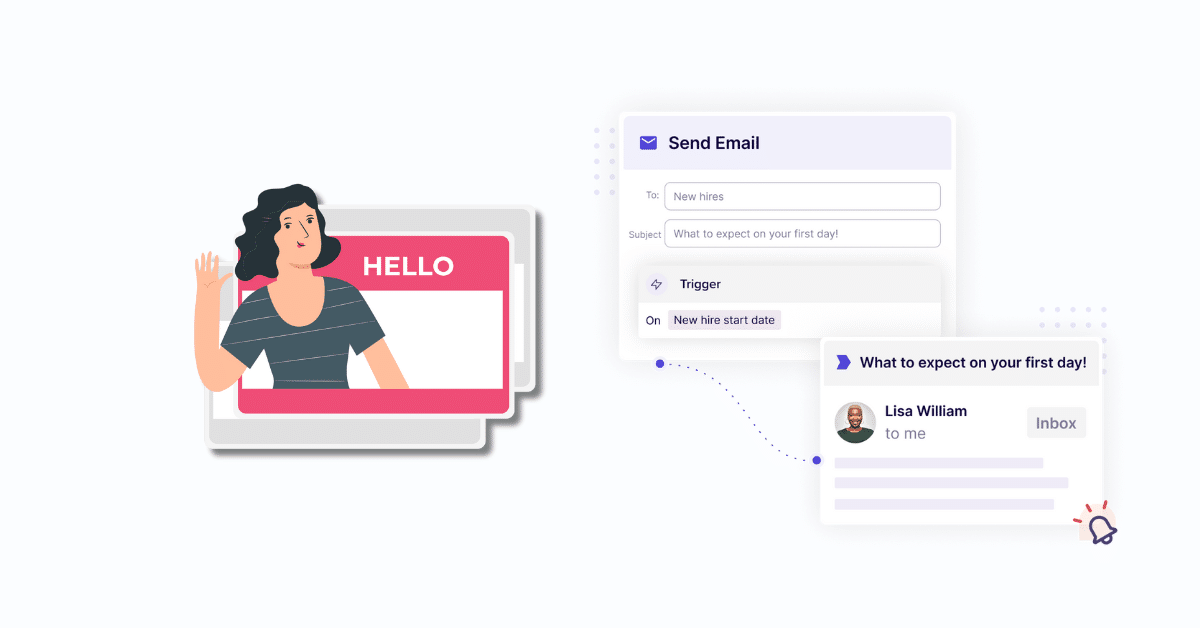If there’s something strange
In your neighborhood
Who you gonna call?
No one.
Because you have been ghosted.
Wait, isn’t getting ‘ghosted’ just for people on Tinder and Hinge?
Nope, the lines between personal life and professional life are blurring. And we’re not just talking about work-life balance or remote working in PJs. Ghosting originated in online dating, when someone disappears and cuts off all communication, but it’s been promoted to the work world. Employers getting ghosted by job seekers is not a new phenomenon but it’s reaching a new high and comes in various forms. Many companies are reporting new hires not showing up for the first day, candidates skipping out on interviews, and workers suddenly going missing.
But how many people are really doing this?
More than companies would want. In the beginning of 2022, 16% of job seekers admitted to ZipRecruiter they ghosted an employer. Four months later that number went up to 20%. Even after accepting a job offer, 13% said they ghosted the company. Even more surprising, in an Indeed.com survey 7% didn’t show up for the first day on the job.
While all the reasons why someone goes from Casper the candidate to Casper the friendly ghost are unclear, 20% said they got another offer, 13% were unhappy with the salary being offered, and 15% decided the job wasn’t right for them.
That’s because ghosters are hustling, sending out as many applications as they can to land interviews and collect more than one offer. Two-thirds of candidates go silent because they land a gig with more money or better benefits elsewhere, according to a CareerBuilder study. Job seekers are actively interviewing with multiple companies, gathering offers, and simply picking the one they want and ghosting the rest.
Stockpiling offers is easier than ever since technology has made applying quick, effortless, and frankly impersonal. It is as simple as filling out contact information and attaching a resume. It can be done anywhere (with wifi of course) and at any time. Some positions may not even require interacting with a real-life person to land the job. The interview experience has become increasingly impersonal. The process has been dehumanized – on both ends – making it much easier to vanish.
Interviews over the phone or through Zoom are now the norm since so many people are working remotely. The difference between meeting face-to-face versus virtually is an extra layer of connection to a company or hiring manager. Without developing a real relationship during the recruiting process, a voice on the phone or face on the screen is easy to click X on and move on. Burning bridges has always been bad form and it still is. But ghosting could be on the rise since the chances of running into anyone in person afterward is low to nonexistent with people working remotely all over the world.
Of course there’s the one reason that may hurt the most: they’re just not that into you. Just like dating, when someone decides to sever all ties suddenly, romantically or professionally, the person likely wants to reject you and is trying to avoid an uncomfortable conversation or a conflict.
Ghosting haunting many industries
Industries across the board appear to be possessed. According to lead economist Sinem Buber at ZipRecruiter, ghosting isn’t just happening with low-wage roles. Buber told Fast Company, more white-collar candidates in technology and finance are ghosting too, even if they have accepted an offer, some with salaries up to $100,000.
The industry being haunted the hardest – advertising, marketing, PR, and media. According to a 2019 survey of full-time employees in various industries by TheKnowledgeAcademy.com 28% of candidates went radio silent during the interview process for advertising, marketing, PR, and media. As for business, finance, and legal 21% of candidates ghosted an employer. 14% for retail and hospitality and 11% for technical services.
Even candidates who commit and accept job offers can’t be counted on. The Wall Street Journal found manufacturers, restaurants, airlines, and cleaning companies are seeing an increase in people signing the dotted line and never seeing or hearing from them again. Southwest Airlines reported up to 20% of new hires not showing up for the first day on the job and a Texas cleaning company had an eye-popping 80% of new hires disappear without notice, some even work one to two shifts and don’t bother to pick up their paychecks.
The trend is becoming all-too-common practice in the recruiting process and it might be here to stay since younger applicants appear to be the ones disappearing into the darkness. ZipRecruiter found that 31% of candidates looking for their first job ghosted an employer versus just 12% of experienced candidates. The larger number could be for a variety of reasons, including less experience with professional etiquette or growing up on dating apps, where ghosting is the norm.
Rid the spirits
Scheduling a seance to contact dead spirits might not get you any answers about this supernatural phenomenon happening now in the professional world. To avoid being ghosted, employers should improve communications, speed up the hiring process, keep it human, and be clear on the overall process from the start to keep candidates interested.
More than half of candidates want more information about the employer and where they stand in the process, according to one survey. That includes pay and salary rates. Transparency in job postings around salary ranges is recommended as positions without pay rates get about half the applicants. This is fast being mandated across the US – with the states of Colorado and California along with the city of New York leading the way.Giving candidates all the information they need and job seekers feeling comfortable getting all their questions answered could make the difference.
There are plenty of ways to make this easier and keep a dream candidate interested. You can use a tool like Cleary to keep communications going, even after a candidate has accepted an offer to get them more excited as day one approaches.
Another suggestion is to cut down the interview and offer process. The faster an employer can lock in a candidate the less time a competitor can sneak in with an offer themselves.
Either way, no one likes being ghosted and being the ghoster is unkind so we should all take the time to respond or reject someone, if that’s the case.




